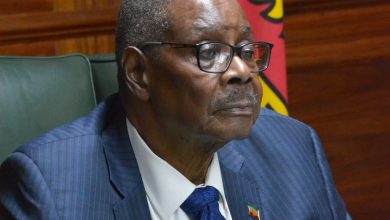NGOs uncomfortable with forex regulation
Non-governmental organisations (NGOs) under the banner of National Advocacy Platform (NAP) have expressed fear that the 80 percent mandatory conversion of forex highlighted in the recently gazetted foreign exchange law could affect their operations.
The Exchange Control (Management of Non-Governmental Organisations and Public Sector Foreign Currency Receipts) Regulations of 2025 and recently published on the Reserve Bank of Malawi (RBM) website indicates the NGOs’ Forex conversion ratio of 80 percent.
Reads the regulation in part reads: “The Bank shall apply a mandatory conversion or retention ratio of 80 percent of the total funding credited in a holding foreign currency-denominated account, at the official buying exchange rate, published by the Bank.

“A holding foreign currency-denominated account holder that requests the transfer of funds in accordance with sub-regulation shall complete and submit a bank transfer instruction to its bank, and the bank shall immediately submit a request to the Bank for release of the funds to the operating account of the requesting institution.
“Where the funds requested will be used within Malaŵi, the Bank shall transfer the funds so requested to the authorised dealer bank in the Malaŵi currency equivalent, converted using the official buying exchange rate published by the Bank, on the day the transfer is effected.”
In an interview, NAP chairperson Benedicto Kondowe described the 80 percent mandatory conversion clause under regulation number 6(1), as not only alarming but dangerously erratic.
Kondowe said: “Just last year, the Reserve Bank shifted the ratio from 70 percent to 50 percent —now it’s swinging back to 80 percent. This policy flip-flopping cripples financial planning, undermines operational certainty, and casts serious doubt on Malawi’s policy credibility.
“One cannot rule out the possibility that government is using this regulation as a backdoor to milk forex generated by NGOs to fund its unsustainable and questionable expenditure at the direct expense of life-saving services NGOs provide across sectors like health, education, and humanitarian support.”
According to NAP which represents over 500 NGOs, this move risks derailing development efforts, eroding donor trust, and worsening the plight of millions of Malawians who depend on NGO-supported interventions.
In a separate interview, market analyst Cosmas Chigwe said 80 percent conversion ratio could be disruptive to NGOs as they need to retain a significant portion in foreign currency to meet obligations such as paying regional or international service providers, expatriate staff, or cross-border programming.
He has since highlighted implications of the move which include exposing the NGOs budgets to exchange rate challenges and inflation which could result in local NGO donors opting to channel their funding through other regional hubs.
Chigwe said: “An 80 percent conversion requirement limits their flexibility and may erode the real value of donor funds due to exchange rate fluctuations and inflationary pressures when funds are prematurely converted and held in Malawi kwacha.
“The move may also serve to dampen donor confidence, as it adds an additional layer of currency risk to already constrained budgets. Some donors may opt to redirect funding through regional hubs or reduce their financial footprint in Malawi altogether, which could negatively affect program delivery, especially in critical sectors like health, education, and food security.”
According to Chigwe, a more balanced approach could involve targeted negotiations with major NGOs on forex retention thresholds, coupled with incentives to repatriate funds through formal channels.
In a brief interview, Financial Market Dealers Association of Malawi president Leslie Fatch described the regulation gazetted in April 2025 as part of the amended foreign exchange controls.
By then, RBM indicated that it reduced the conversation ratio for NGOs from 70 percent to 50 percent a development which Fatchi commended as being responsive.
“We have been advocating for a review of the retention policy for the NGO receipts, so the changes made will improve the forex liquidity compared to the initial regulations, which were effected in December 2024,” he said.
RBM spokesperson Boston Maliketi Banda did not respond to our questionnaire for a clarification.





